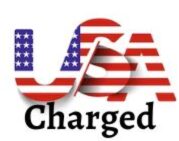A credit protection number (CPN) is one way for people who want to fix their credit to do so. Companies that sell these numbers say that they can help hide bad credit or breakdowns. But how does a CPN do their job? How about the law?
Contents
Key takeaways
- A CPN is a number with nine digits that looks like a Social Security number (SSN).
- Using a CPN to make a fake name is against the law and could be seen as identity theft.
- CPNs may also be called credit protection numbers or credit profile numbers.
- People who want to fix their credit should avoid companies that offer quick fixes or CPNs that aren’t real.
How does a private number for a credit card work?
A CPN is a number with nine digits that looks like an SSN. But it’s not the same as an SSN, even though that’s how it’s often sold.
Scammers sell CPNs as a way to hide bankruptcies or bad credit, or to use instead of an SSN when asking for new credit. But don’t let it fool you. Your debts and bankruptcies will still show up on your credit record. And it is against the law to lie about your SSN on a credit application.
Is a CPN OK to use?
It is against the law to sell CPNs as a way to fix your credit. And many companies that sell CPNs get these numbers by stealing the SSNs of people who don’t know what’s going on, like children, people in jail, or older people, and passing them off as CPNs.
Stay away from things that could be CPN scams to protect yourself. For example, if you are asked to pay a lot of money or give false information on a loan application. Instead of hiding your credit reports as promised, this could cause you to make up a new name and put you at risk of identity theft.
Can you apply for a new SSN instead?

There aren’t many reasons why someone would get a new SSN, and starting over with your credit isn’t one of them.
Even in those rare cases when someone might need a new SSN, getting one isn’t easy. Even if it does happen, your old SSN will still be linked to your name.
There are other ways to fix your credit
There are many ways to improve credit, which is good news. Here are a few things that the Consumer Financial Protection Bureau says can help:
Pay your bills on time every time. For good credit, you need to make payments on time every time you get paid. Think about setting up automatic payments or notes to make sure you don’t forget.
Keep your rate of credit use low. When you have a lot of debt, your credit usage rate goes up and your credit score goes down. Your general credit utilization rate will go up if you close credit card accounts and put most or all of your available credit on one card. Experts say that if you can, you should try to keep your debt at no more than 30% of your available credit amount.
Apply for cash only if you need it. One of the things that credit scoring systems look at when figuring out your credit score is how you’ve used credit in the past few months. If you ask for a lot of credit in a short amount of time, it could look like your financial situation has gotten worse. So, you might want to wait to open any new accounts while you’re trying to get your credit back on track.
Look over your credit record for mistakes. Keeping an eye on your credit report can help you find mistakes or things that don’t add up. So, if you see something that doesn’t look right, you should tell it and have it fixed as soon as possible.
In a nutshell: CPNs
Be wary of any company, like CPN scams, that claims to improve your credit score quickly. Using a CPN to make up a fake identity for a credit application could be called identity theft. And it is a federal crime to lie about your SSN.
There are a number of things you can do on your own to improve your credit score. Don’t know where to begin? Check out these tips on how to get your credit back on track.
Stay tuned to our website Usacharged.com for more updates.



